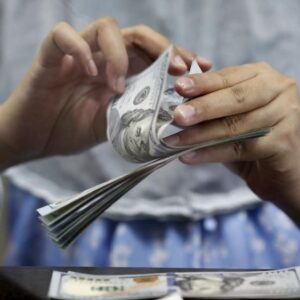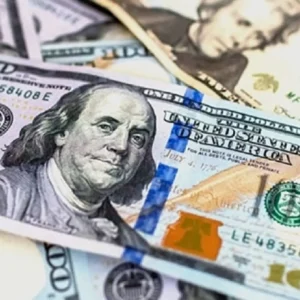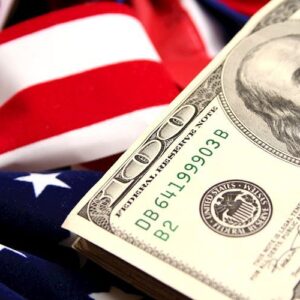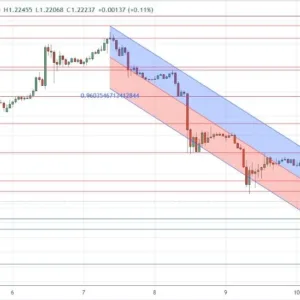Bạn đang xem: Gov’t measures to boost won draw forex reserve concerns
Published: 17 Dec. 2024, 18:10
Updated: 17 Dec. 2024, 19:36
Xem thêm : Will the Dam Break? (Video)
Audio report: written by reporters, read by AI
Bank of Korea Gov. Rhee Chang-yong, right, speaks during a parliamentary inquiry at the National Assembly in western Seoul on Dec. 17, with Minister of Economy and Finance Choi Sang-mok on his left. [YONHAP]
Xem thêm : Forex Markets React to Speculation on Trump’s Economic Policies
As Korea continues to grapple with a weakening currency in the aftermath of President Yoon Suk Yeol’s martial law declaration on Dec. 3, authorities are tapping into foreign exchange reserves and the exchange equalization fund to mitigate the depreciation pressure.
Despite the government’s insistent reassurances of stability, concerns are persisting over the stubbornly weak won against the dollar, as well as the potential depletion of policy tools.
Yoon’s short-lived martial law declaration pushed up the day-trading closing rate of the won-dollar exchange from 1,402.9 per dollar to 1,410.1 on Dec. 4. Despite the prompt resolution of the situation, the exchange rate has continued to soar ever since, even after the National Assembly passed an impeachment motion against the president on Saturday.
The won-dollar rate soared as high as 1,439.3 per dollar mid-trading on Tuesday, closing at 1,438.9 as of 3:30 p.m.
The won’s recent devaluation is a multilayered issue, noted Kim Sang-bong, an economics professor at Hansung University.
“While the previous surges above the 1,400 mark were largely driven by external factors, the latest situation is different as not only external factors such as the U.S.-China conflict and the second Donald Trump term, but also internal factors such as the slowing growth in exports and the impeachment proceeding are also playing part,” said Kim.
The 1,400 won-per-dollar mark has long been a significant threshold in Korea, especially due to the lingering memory of the 1997 foreign exchange crisis and the economy’s export-driven nature.
Nevertheless, the Bank of Korea (BOK) and Ministry of Economy and Finance remained confident that the current foreign exchange market situation does not constitute a crisis.
“Concerns about a foreign exchange crisis are overstated,” said BOK Gov. Rhee Chang-yong during a parliamentary inquiry at the National Assembly in western Seoul on Tuesday.
“A foreign exchange crisis occurs when a country is unable to repay foreign debts, but we are a net creditor,” said Rhee, assuring that Korea is experiencing no issue taking out loans in the foreign exchange market either.
Minister of Economy and Finance Choi Sang-mok echoed the stance.
“As Korea’s foreign exchange reserves rank ninth-largest worldwide, and we are a net creditor country, international institutions including the International Monetary Fund have found our response capabilities sufficient,” said Choi.
However, the two key policy tools used for currency intervention in Korea — foreign exchange reserves and the exchange equalization fund — have been shrinking notably over recent years.

Foreign exchange reserves, which can be used by a central bank or the government to mitigate devaluation pressure, are a crucial indicator in determining a country’s sovereign credit. For Korea, the $400 billion threshold is often cited as a psychologically significant level denoting a stable buffer. The mark was last breached in May 2018, and reserves have remained above it ever since.
But the reserves, which peaked at $469.21 billion in October 2021, have been gradually declining near the $400 billion mark, logging $415.39 billion by the end of November. As the government has been actively addressing the sharp depreciation since Dec. 3, the figure is likely to fall even further by the end of this year.
“If the foreign exchange reserves dip below the $400 billion mark, it may further accelerate the ongoing foreign capital outflow,” said Kim Jung-sik, a professor emeritus of economics at Yonsei University.
Meanwhile, the government has been using the exchange equalization fund — which is used to trade dollars or won to stabilize currency volatility — to cover tax shortfalls. The government repurposed 19 trillion won from the fund to a public capital management fund to make up for a tax shortfall last year, with about 4 to 6 trillion won expected this year.
The budget allotted for the exchange equalization fund has been reduced for next year by 64.8 trillion won to 140.3 trillion won as well.
While the Finance Ministry said that the reduced budget would not undermine capabilities to address foreign exchange volatility, the National Assembly Budget Office suggested, “The decision to repurpose the exchange equalization fund requires a cautious approach considering the high volatility of the foreign exchange market and its strong influence on market participants” in an annual account report for last year’s budget.
BY KIM KI-HWAN, SHIN HA-NEE [[email protected]]
Nguồn: https://cumlaude.fun
Danh mục: News






